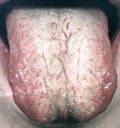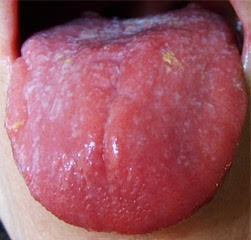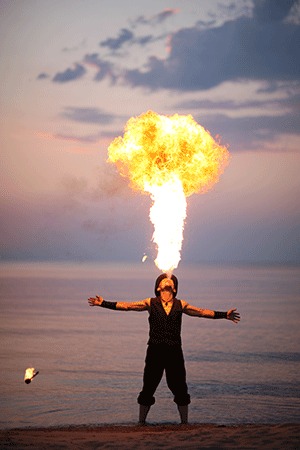Heat is an extremely common condition in Traditional Chinese Medical Diagnosis.
In Ayurveda Heat can be described as pitta and there are two broad classifications: Pitta prakriti describes a constitutional predisposition of a normal pitta condition from birth. This is distinguished from Heat or inflammatory disease described as pitta vikruti which is an abnormal inflammatory or pitta condition.
Western herbalism doesn’t differentiate individuals from a constitutional predisposed state and describes only inflammation with little differentiation in terms of treatment, unless one delves into the older texts which describe excess heat as sthenic and deficient heat as asthenic.
In a personal correspondence with Giovanni Maciocia about this, he wanted to be sure that I emphasize that Heat is not the same as what is currently described as ‘inflammation.’ Inflammation is a kind of Heat, but the distinction is that while TCM “Heat” is caused by Qi Stagnation, it is broader in its implications while many types of inflammation such as those caused by bruising are caused by Blood Stagnation and is more confined to a specific area.
Today Western medicine and Western herbalists make much out of the notion of inflammation being an underlying cause of disease. Western medicine uses over the counter non-steroidal anti-inflammatory drugs (NSAIDs) along with more powerful drugs including antibiotics, antivirals and cortisone-type drugs. From the point of TCM, these may clear up the acute manifestation of inflammation but not the underlying condition of “Heat” in TCM terms. Thus one can have no inflammation but still have symptoms of TCM Heat or vice versa, symptoms of inflammation without TCM Heat and finally both inflammation and TCM Heat.
All of which begs the question, what is TCM “Heat”?
Any definition is bound to invite criticism but, let’s face it, while I practice Chinese medicine and regard it as the greatest gift of wisdom from the ancient world to contemporary society, I doubt whether I will ever be able to understand some of the TCM concepts of Chinese medicine with the same perspective and understanding that someone steeped in that culture from birth might have. So I’m a Western herbalist practicing Chinese Medicine as a part of a wider practice of herbal medicine which I call ‘Planetary.’ So here goes my definition of TCM “Heat:”
Heat according to Traditional Chinese Medicine is a general condition of hyperactivity that arises as a result of a fundamental Yin-Yang imbalance, which in Western terms would be an imbalance of homeostasis.
I know we don’t like to think of our bodies as an engine but I think mechanical engines were modeled after our body and the internal organs correspond to all of its internal parts. The basic idea is to take a small spark and amplify it so it moves a vehicle and that is what the gears, carburetor, motor cylinders, cooling system, etc. is designed to do.
So just as when we take a vehicle and run it on fast high gear using poor quality fuel, oil, lack of lubrication and cooling fluid, eventually depending on the integral strength of the material from which the engine parts are made, they will get hot, wear out and eventually break down altogether causing the engine to shut down.
Similarly, when we run the human body on poor quality food, air and water, and/or subject it to overwork and various forms of physical and emotional stress, the body will get hot, wear out and eventually break down.
The most vulnerable parts of our internal engine-the organs, hormones, etc.-go through a process first of Excess Heat, where ‘we give it all we’ve got’ so to speak. Then gradually the wear and tear begins to show on one or more of those internal organs until it begins to sputter out with heat generated from a weakening which is called Yin Deficiency first followed by symptoms of “empty Heat.”
Of course the engine or the body doesn’t shut down due to Heat alone, but as a result of the damage the Heat has done to the vulnerable internal organ(s).
The point to keep in mind here is that the cause of Heat and therefore the type of Heat in the last stages of Yin Deficiency is different from the Heat generated in the earlier stage of “Full or Excess” Heat.
 Full or Excess Heat (tongue pictured at left) simply requires cooling everything down but Yin Deficient Heat requires lubrication and rebuilding. This is what Yin tonics in TCM do. While consuming herbs such as Echinacea or dandelion root, rhubarb, and cascara, more vegetables and fruits instead of red meat, and practicing quiet introspection will cool excess Heat, Yin Deficient Heat or Empty Heat requires nourishment, rest, oiling, and other things that will lubricate the dryness caused by prolonged excess.
Full or Excess Heat (tongue pictured at left) simply requires cooling everything down but Yin Deficient Heat requires lubrication and rebuilding. This is what Yin tonics in TCM do. While consuming herbs such as Echinacea or dandelion root, rhubarb, and cascara, more vegetables and fruits instead of red meat, and practicing quiet introspection will cool excess Heat, Yin Deficient Heat or Empty Heat requires nourishment, rest, oiling, and other things that will lubricate the dryness caused by prolonged excess.
To one who is not aware of this distinction, it would seem that Yin Deficient Heat is simply what arises as infections and inflammation and that the same old standbys (NSAIDs, antibiotics, cortisone) will do the trick but usually these don’t work in the long run, certainly not the same as they might if they were used to treat Excess Heat.
In extreme cases we recognize this type of Deficient Heat as any number of wasting diseases such as HIV, chronic hepatitis or TB. However one can be somewhat wasted from stress and overwork without having these or for that matter any clearly defined disease. Disease leading to death as a result of deficiency only occurs in the later stages of Yin Deficiency. Before this or during there are a number of other general symptoms of Yin Deficiency manifesting Empty Heat that a TCM doctor looks for such as:
- a feeling of heat in the afternoon/evening
- a dry mouth with a desire to drink in small sips
- malar flush (red cheekbones)
- dry throat at night
- feeling of heat in the chest, palms and soles (called 5-palm heat).
- Dry stools
- Scanty dark urine
- Floating and rapid pulse
- Red tongue without a coat
 An acknowledged ‘master’ of tongue diagnosis, Maciocia describes how a tongue that lacks a coating (pictured at right) and/or has scattered cracks is typical of Yin Deficiency. As described above, but requiring more experience to recognize, a Yin Deficiency pulse may be slightly rapid and thin or floating and empty. In other words, the pulse and tongue reflect Qi desperately struggling to maintain presence, or as some individuals suffering from nervous burn-out might describe it, just struggling to keep things together.
An acknowledged ‘master’ of tongue diagnosis, Maciocia describes how a tongue that lacks a coating (pictured at right) and/or has scattered cracks is typical of Yin Deficiency. As described above, but requiring more experience to recognize, a Yin Deficiency pulse may be slightly rapid and thin or floating and empty. In other words, the pulse and tongue reflect Qi desperately struggling to maintain presence, or as some individuals suffering from nervous burn-out might describe it, just struggling to keep things together.
Stay tuned for Part 2 of this blog, which will discuss the etiology and herbal and other treatments for Heat and Yin Deficiency, published later this month!

